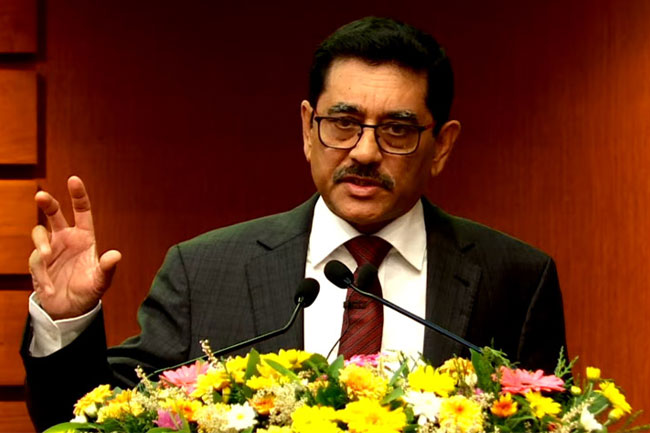CB lays out policies to restore price stability, macroeconomic strength
- Says inflation remains well anchored along current disinflation path
- But monetary policy will remain tight till inflationary pressures are sufficiently contained
- Says IMF deal could materialise within early 2023 but non-committal on a precise timeline
- New Central Bank Act and Banking Act could come through as year progresses
- Economy is estimated to have contracted by 8% in 2022; recovery expected from 2H23
The Central Bank yesterday laid out its short to medium-term policy path and a slew of other measures that it intends to roll out primarily to restore price stability and to maintain the financial system’s health, as Sr Lanka struggles to emerge from the worst economic crisis since its independence.
Coming into 2023, there were widespread expectations for the Central Bank to relax the ultra-tight monetary policy to support the economy from its deep contraction. However, the space to do so appears to be increasingly narrowing, given the heightened risks still prevalent in inflation spiking, due to the delay in getting the Board approval for the International Monetary Fund (IMF) bailout.
While the Central Bank expects the current disinflationary path to persist through 2023 towards reaching the desired 4-6 percent levels from the current 57.2 percent level, it said any upside risks to inflation along the way would be addressed through appropriate policy measures.
“Inflation expectations remain well anchored along the projected disinflation path,” the statement said.
Meanwhile, despite the early optimism of securing the IMF bailout, initially towards the end of December last year, which was then expected in January 2023, the odds of a deal appear to be becoming increasingly elusive, as the Central Bank now refers to a time frame of “early 2023”.
The longer the IMF deal takes to materialise, the higher the economic hardships the people will have to confront.
Meanwhile, the Central Bank said it expects a moderation in the interest rates in lockstep with the envisaged disinflation path. However, it cautioned that it wouldn’t hesitate to take administrative actions against banks if such adjustments appear to be taking longer than anticipated.
“The Central Bank has already requested the banking and non-banking sector institutions to avoid unhealthy competition for raising deposits by offering high rates of interest, which has led to excessive adjustments in all market interest rates, including the lending rates, well above the adjustment of policy interest rates,” the statement said.
The Central Bank expects the new Central Bank Act to see the passage through Parliament for its enactment, reinforcing its core objective of achieving price stability via flexible inflation targeting framework.
The Central Bank will also start publishing a forward-looking monetary policy report to better inform the public on the outlook of the economy and thereby further improving transparency of the monetary policy actions.
On the financial sector reforms, the Central Bank said it would ensure liquidity support to fulfil cash flow requirements of banks to enhance their resilience while the proposed Banking (Special Provisions) Act is expected to provide the required legal framework to ensure that banks remain sufficiently capitalised.
Meanwhile, consolidation among banks and finance companies will also be facilitated to improve capital among other synergistic benefits. On the foreign exchange management front, the Central Bank said the demand management measures it took by curtailing certain imports would be reviewed going forward in relation to the foreign exchange liquidity and monetary conditions.
The Central Bank also said the economy was estimated to have contracted by a record 8 percent in 2022 and is expected to stage a gradual recovery from the second half of 2023 and sustain the growth momentum thereafter.
Source – Daily Mirror

